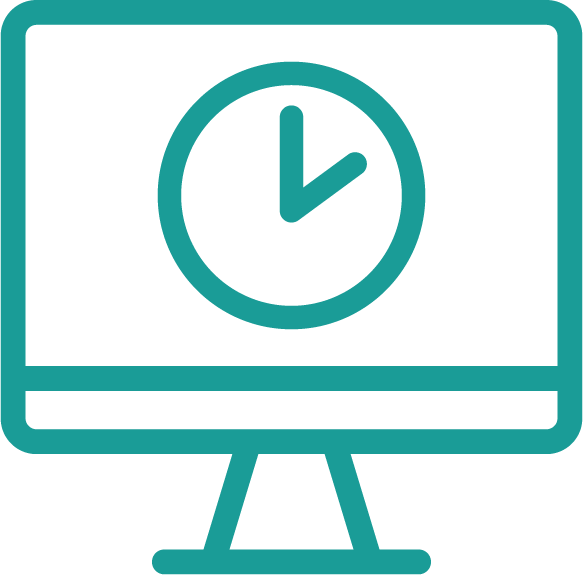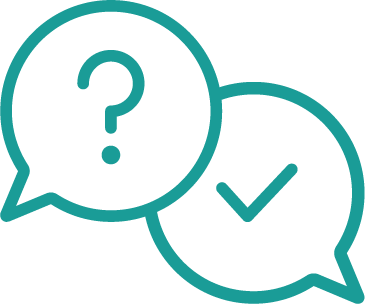The Certified Healthcare Documentation Specialist Training Program
Get extensive training in medical terminology, electronic health records, medico-legal regulations, and HIPAA.
The Certified Healthcare Documentation Specialist Training Program
Get extensive training in medical terminology, electronic health records, medico-legal regulations, and HIPAA.
Certified Healthcare Documentation Specialist Training
Our Certified Healthcare Documentation Specialist Program is online by design so you can study at your own pace, wherever and whenever works for you.
-
12 Months of Full Access
-
$50,250 Average Annual Salary*
-

CEHRS Certification Prep
5 Reasons to Complete Your Certified Healthcare Documentation Specialist Training With CareerStep

Learn at your own pace.
With 12 months of program access, you can study wherever and whenever you'd like.
Absorb more info—faster.
Not everyone learns by listening to lectures or reading monotone textbooks. Our training platform caters to all learning modalities so you can absorb and retain more information in record time.

Enjoy end-to-end support.
Investing in training and learning something new takes courage. But you don’t have to do it alone. We back you from sign-up all the way through completion—and beyond.
Get certified.
Our career training provides the knowledge and certification prep materials you need to sit for the CEHRS certification exam.
Acquire relevant skills.
This program is specifically designed by experts in the field with extensive knowledge of what skills health providers are looking for when hiring new employees.
1. Start today.
Begin your training right now.
2. Learn your way.
Complete your training on your own terms.
3. Get certification-ready.
Prepare to take valuable certification exams.
Ready to Dive In?
Interested in enrolling in a CareerStep program? Fill out the form below and our team will reach out to you with information about our partner schools in your area.
"*" indicates required fields
Program Details
This program prepares Learners to work with confidential information in traditional office settings. The skills and knowledge you’ll learn throughout your training may be applied in care clinics, surgical centers, hospital settings, and other healthcare environments.
- > 12 Months Access
- > Self-Paced Study
- > Anywhere, Anytime Learning
- > 1:1 (Human) Support

What You’ll Learn
This program covers everything you need to know to help position yourself as an ideal candidate for nearly any medical records or HIT role:

History of Medical Scribing
Medical scribing continues to evolve. We’ll fill you in on where the profession started, where it stands now, and where we expect it to be in the future.

Functions of Electronic Health Records
Learn all about EHR—how they work, what they’re for, and why they’re valuable.

Basic Body Systems
We’ll walk you through all the basic body systems and provide an overview of standard terminology.

Communication Standards
Learn how to construct an accurate and organized HPI, which requires the use of medical terminology and appropriate phrasing as used in formal healthcare documentation.
Healthcare Documentation Specialist Training FAQ
What is a healthcare documentation specialist?
Healthcare documentation specialists are workers who focus on the administrative side of healthcare, working with documents and paperwork. Depending on their specific job, they could transcribe and edit recorded notes from physicians and other medical professionals, work with billing and medical coding, review and organize patient records, or update patient records.
How much does a healthcare document specialist make?
According to the Bureau of Labor Statistics, medical records specialists can make around $50,250 per year or $24.16 per hour.*
How do you become a healthcare documentation specialist?
To become a healthcare documentation specialist, you need at least some post-high school education, though you don’t necessarily need a college degree to qualify for the job. You should get some training in healthcare basics like HIPAA practices, medical terminology, and electronic health records. Once you’ve completed training, the next step is to get certified. While certification isn’t required to find a job in the field, many employers may prefer to hire documentation specialists who are certified over those who aren’t. A common certification you can pursue is the Certified Electronic Health Records Specialist (CEHRS) exam.
Is healthcare a growing field?
CareerStep training programs are all focused on growing industries—particularly healthcare, which is projected to have 1.9 million job openings every year, on average, for the next decade.**
Medical record specialist jobs in particular are expected to grow 9% through 2033.*
What do health information technicians do?
Health information technicians have a pretty incredible gig. In simple terms, they use technology to help healthcare providers improve care and lower costs, but the day-to-day routines are a lot more involved than you might think. Typical job responsibilities include tracking patient outcomes for quality assessment, using classification software to assign clinical codes for insurance reimbursement, and recording data for collection, storage, analysis, retrieval, and reporting.
Get Trained Today.
This program includes comprehensive training, career support, and coaching, along with certification prep materials and exam fees.
$3,999 for full program access
$3,999.00 for eligible MyCAA and ACA learners
Or call now: (800) 411-7073 >>
*Bureau of Labor Statistics, U.S. Department of Labor. “Medical Records Specialists.” Occupational Outlook Handbook. Accessed April 22, 2025.
**Bureau of Labor Statistics, U.S. Department of Labor. “Healthcare Occupations.” Occupational Outlook Handbook. Accessed April 22, 2025.
Statements found in the United States Department of Labor Occupational Outlook Handbook are not a guarantee of any post-graduation salary, in part because the data used to create the Occupational Outlook Handbook includes workers from differing educational backgrounds, levels of experience, and geographic areas of the country.

